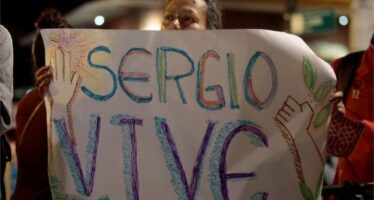Cable reveals EU’s hard feelings on Greek Cyprus accession
![]()

Chris Patten, the EU’s former external relations commissioner.
The European Union had to accept Greek Cyprus’ accession despite its leader’s public campaign against a UN plan to reunite the island because member Greece would have otherwise blocked the membership of other countries, a former EU official was quoted as saying in a US diplomatic cable released by WikiLeaks.
Chris Patten, the EU’s former external relations commissioner, noted during a meeting with officials from the US Embassy in Brussels that “some of the accession countries were foisted on the EU as part of a larger bargain.” He then cited Greek Cyprus, saying it “probably should not have been admitted” as former Greek Cypriot leader Tassos Papadopoulos’ behavior prior to the referendum indicated. “But the Greeks insisted on Cypriot admission as the price of agreeing to some of the northern European candidates,” the document, dated April 28, 2004, reads. The EU allowed Greek Cyprus to join as a full member a few days after the Greek Cypriots overwhelmingly rejected the UN plan in 2004.
Papadopoulos, who died months after losing elections for a new term in 2008, had publicly campaigned for a “no” vote in the referendum. The EU’s then top enlargement official, Guenter Verheugen, said a few days after the vote that he “felt cheated” by the Greek Cypriot government.
The leaked cable shows Patten was also upset by the Greek Cypriot vote, calling it a sad reflection of the realities of EU enlargement. He was disturbed by Papadopoulos’ personality, too, recalling allegations that Papadopoulos had been involved in laundering money for former Yugoslav President Slobodan Milosevic. “Some of the new members were people you would ‘only want to dine with if you have a very long spoon.’ Not that the EU should have been surprised by Papadopolous’ behavior, Patten said, since they knew well who they were dealing with: Milosevic’s lawyer,” reads the document.
The former EU foreign policy chief also tells US diplomats that Croatia, now a candidate, is more prepared than either Bulgaria or Romania, which joined the bloc in 2007, according to the leaked cable. Patten also comments on Russian President Vladimir Putin, saying that “he seems a completely reasonable man when discussing the Middle East or energy policy, but when the conversation shifts to Chechnya or Islamic extremism, Putin’s eyes turn to those of a killer.”
Other disclosures
Among other revelations in the new WikiLeaks release on Wednesday is a February 2010 statement by Spanish National Court Prosecutor Jose Grinda Gonzalez to US diplomats that a Russian criminal whom he said worked for the Russian intelligence, Zakhar Kolashov, sold weapons to the outlawed Kurdistan Workers’ Party (PKK) to destabilize Turkey.
Another leaked document, dated March 2009, shows the US sought a Turkish investigation into information that Venezuela was to receive a shipment of unmanned aerial vehicles (UAV) and related material from Iran, via Turkey, by May 2009 and to prevent such shipment. “As of early March, Venezuelan officials believed that the equipment would be repackaged and labeled as electronic equipment, then transported overland from Iran to Turkey. Once in Turkey, the equipment would be loaded onto a maritime vessel for continued shipment to Venezuela. The US believes this shipment constitutes arms and related materiel, which Iran is prohibited from transferring pursuant to UN Security Council Resolution 1747,” reads the document.
Also in the documents is a disclosure that French officials were not sure if Syrian President Bashar al-Assad really persuaded Iran to release a French national, Clotilde Reiss, from prison despite their public statements proclaiming his “important” role. A French official told the Americans that Turkey, Qatar and EU member states also sent messages and applied pressure on the Iranians and that it is unclear if Reiss would have been freed without such interventions.
Related Articles
Syria’s operations close to border may spark clash with Turkey
![]()
MUHL?S KAÇAR ANKARA A Syrian woman carries her baby to the hospital tent at a refugee camp in the town
Greece to hold new general election after failure to form government
![]()
Greek President Karolos Papoulias (C) meets with five of the Greek political leaders — New Democracy leader Antonis Samaras (3-L),
Asesinato del líder indígena Sergio Rojas en Costa Rica: carta de órganos de Naciones Unidas hecha pública
![]()
El asesinato de Sergio Rojas viene a interpelar a las autoridades costarricenses dadas las diversas advertencias hechas por un sinnúmero de organizaciones sociales y de derechos humanos en los últimos años



